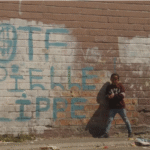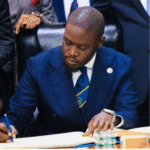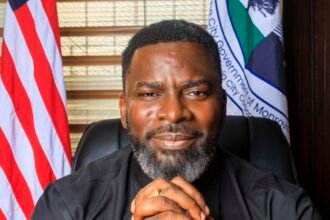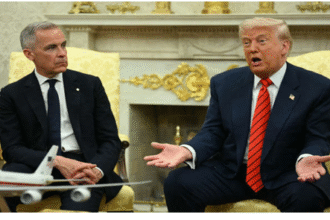By Lamin Guèye
Monrovia, Liberia – Liberia, a nation blessed with abundant natural resources, fertile land, and a strategic location in West Africa, faces a critical juncture. While possessing the potential for significant economic advancement through industrialization, modernization, and improved living standards, the country is currently struggling under the weight of political tension and discord, deterring potential investors and businesses.
A significant factor contributing to this uncertainty is the ongoing political infighting within the legislature. Observers lament that rhetoric often overshadows vision and the crucial need for progress. This situation has been exacerbated by a recent arson case involving prominent political figures, further fueling anxieties and uncertainty within the nation.
The case stems from events dating back to May 16, 2025, when arrest warrants were issued for Representatives Dixon Seeboe (District #16, Montserrado), Abu Kamara (District #15, Montserrado), Prescilla A. Cooper (District #5, Montserrado), Jacob Debee (District #3, Grand Gedeh), and former Speaker Fonati Koffa. The charges are linked to an alleged arson incident connected to the political discord that ultimately led to Koffa’s removal as Speaker.
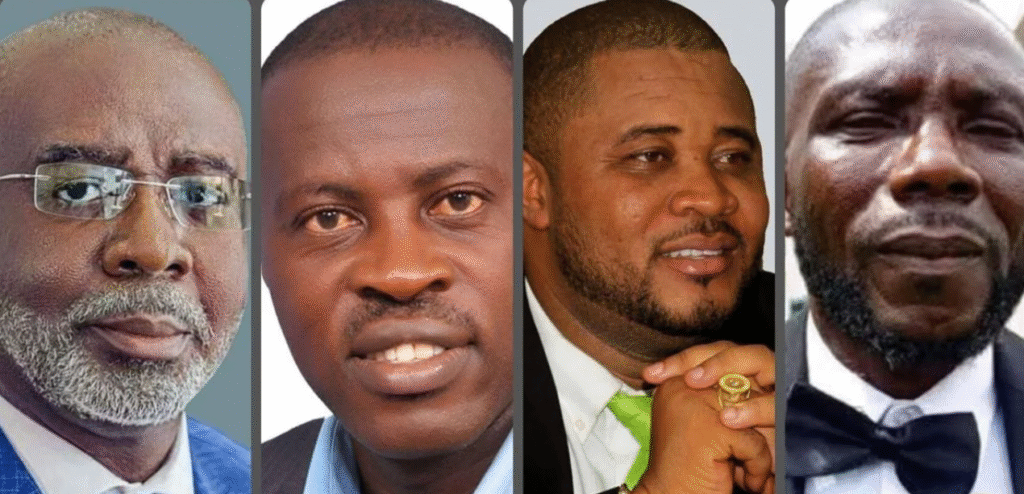
As the trial unfolds, the Liberia National Bar Association (LNBA) has issued a stern warning to citizens, media stakeholders, and political actors to refrain from spreading fear or politicizing the proceedings. The LNBA President, Cllr. Bornor Varmah, emphasized the importance of upholding the rule of law, noting that any political interference or public incitement could undermine the integrity of the judicial process. His warning comes in response to a recent increase in protests, particularly around the Temple of Justice, where the trial is being held.
Cllr. Varmah reminded the public that, under Liberian law, all accused individuals are presumed innocent until proven guilty by a court of competent jurisdiction. He urged restraint and respect for the judicial process as the trial proceeds.
The current political climate, compounded by the ongoing arson trial, presents a significant obstacle to attracting foreign investment and fostering economic growth. Analysts argue that Liberia needs to demonstrate political stability and a commitment to the rule of law to reassure potential investors and unlock its vast potential. With its rich resources and strategic location, Liberia has the opportunity to transform its economy and improve the lives of its citizens. However, this will require a shift away from political infighting and a concerted effort to create a stable and predictable environment for investment and business.
International observers and foreign diplomats in the country all agree that Liberia needs competent legislators to tackles the country’s deep-rooted challenges.
Across the government, everyone seems to appreciate and understand that Liberia faces a daunting array of challenges, from widespread poverty and a staggering youth unemployment rate to dilapidated infrastructure and struggling healthcare and education systems. These issues demand decisive action and, crucially, a capable and intelligent legislature equipped to address them effectively. Experts and ordinary citizens alike are emphasizing the critical need for competent and experienced lawmakers, warning against the dangers of electing inexperienced individuals and those prioritizing noise over substantive policy.
The nation’s poverty rate remains alarmingly high, with a significant portion of the population struggling to meet basic needs. This is compounded by a lack of economic opportunities, particularly for young people, leading to frustration and uncertainty. Deplorable medical institutions, often lacking essential supplies and adequately trained personnel, further exacerbate the situation, impacting public health and well-being.
The state of tertiary education is also a pressing concern. Many institutions lack resources and qualified instructors, hindering the development of a skilled workforce capable of driving economic growth. Coupled with inadequate infrastructure, including roads, electricity, and sanitation, these challenges paint a bleak picture that requires urgent and strategic intervention.
“Liberia cannot afford to have a legislature filled with amateurs and noise makers,” asserted community leader Emmanuel Kollie. “We need representatives who are willing to engage in thoughtful debate, collaborate across party lines, and prioritize the needs of the Liberian people over personal gain.”
The next elections a few years away are seen as a pivotal moment for the country. Voters are being urged to carefully consider the qualifications and track record of candidates, focusing on their ability to understand complex issues, propose viable solutions, and hold the executive branch accountable.
“This is not a game,” stressed a political analyst who spoke on condition of anonymity. “The future of Liberia depends on electing a legislature that is serious about tackling these challenges. We need individuals who are committed to serving the public interest and working tirelessly to build a better Liberia for all.”
As the scrutiny of the legislature intensifies, the call for a competent and intelligent legislature resonates throughout the country, reflecting a growing understanding that Liberia’s future hinges on the quality of its leadership.



